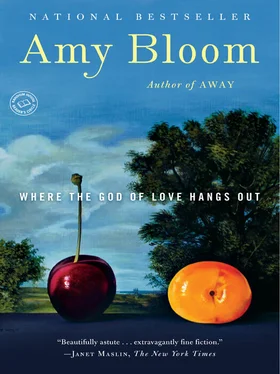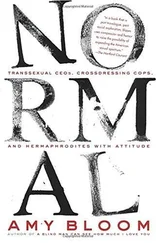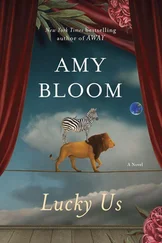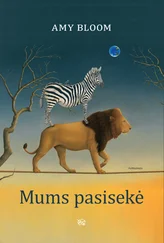Frances ate her sandwich halves and thanked Mrs. Shenker’s mother, who handed her a couple of warm cookies for the road. The Shenkers emerged arm in arm to thank Frances for coming. They told her that Beth was starting school in three weeks, and Mr. Shenker said, She’s nervous about it, but you know Beth — she always gets back on the horse.
Frances got in her car and drove around the corner and pulled over, to just sit for a while.
S.S. DISCOVERY
Dear Beth ,
I saw your picture today. Everyone in America must have seen it, plastered on the cover of People magazine. You look wonderful. Everything that was just on the cusp in you, when I knew you ten years ago, has absolutely flowered. I was sorry to read that your grandmother had passed but your parents look very well and, of course, very proud. I’m sure you are an inspiration to everyone around you, just as they said in the magazine. To have done what you’ve done — the Paralympics and now the triathlon and your work with teenagers — is very impressive .
Things have been quieter, here. I’m actually still at the hospital. I’m the Assistant Director of Social Work, which sounds like more than it is. I handle the scheduling and the outpatient programs but I don’t do any hiring or firing .
My father — I think you met him the time my car broke down at your house — passed away about five years ago. I miss him. It’s weird, at least it’s weird to me, but I now spend most Friday nights with his widow, Carol Skolnick. I don’t know if I ever mentioned it (probably not — we didn’t really talk about me, which was appropriate, since my home visits were for you and to help with your post-traumatic recovery), but my father remarried during the time you and I were in contact. Anyway, Carol and I weren’t exactly close when my father was alive but since he died, she’s reached out to me, and now on Friday nights she lights a Yarsight candle (I don’t know if I’ve spelled this correctly) for my father and for all of the other people we know who have died (I don’t include patients; we just mourn the people we’ve known in our personal lives) and then we have dinner, which is usually Kentucky Fried Chicken. It’s sort of a tradition .
The other big change is that I am in touch with my sister, Sherri, who was not part of my life when you and I knew each other. Sherri lives in Indianapolis and she and her husband run a cleaning service. They clean up after storms and other natural disasters in people’s offices and homes and also just regular cleaning. They have two girls, who are almost as old as you were when I met you, and they are wonderful girls. I only wish I had known them sooner. Sherri called me after our father died and she said to me, Your only family is me, and I remember saying that it didn’t seem like she wanted me in her life and she said that that wasn’t true, that our father had just abandoned her after her religious experience (my sister is, I guess, a born-again Christian and my father and I were the kind of Congregationalists who didn’t bother anyone, and I guess that was an insurmountable difference between them, plus my father and I thought Sherri was gay, which bothered her more than us but she stopped being gay, apparently, when she became born again and married Paul and had the girls). It’s a little odd being in their house sometimes, with Jesus on every wall and pillow and Sherri censors the girls’ reading, like no Harry Potter because of the magic. (I have to say this doesn’t make any sense to me. What makes magic particularly anti-Christian? I understand that calling up Satan is definitely not good but I can’t see how Tinkerbell or flying carpets threaten anyone.) But it is their house and their rules, and my nieces are happy and loving girls, and Paul has been very welcoming in his quiet way, and I am really grateful to spend their birthdays and Christmas with Sherri and her family .
I’ve continued my interest in polar exploration and the great expeditions, although I think it’s safe to say this is not a subject of general interest. They were just so phenomenally brave. They lived on dog meat and willow tea. They boiled old boots and ate them. They ate the deerskin ties off their tents and then they cut up their tents to make footgear, so they could go out and look for the rescue ships. Lieutenant George DeLong of the U.S. Navy spent two winters frozen in place 750 miles from the North Pole, which is not that far — others had traveled farther — and then his ship sank on June 12, 1881. There were fourteen of them left, and still he wrote in his journal, “All hands weak and feeble, but cheerful.”
All my life, those men were my heroes. I think I would have been better off with the astronauts or even the Argonauts or with the saints, if we had been that kind of family, or with the people who marched on Selma for their rights. But my father loved these men and he didn’t seem to notice that they were all, really, pretty crazy and most of them failures (Roald Amundsen was often the villain of these stories and I think now it was because he knew what he was doing; he accomplished his goal and he went on to other successes, and all of that was despicable to my father). These people made terrible mistakes and the best and worst of them just shrugged and said that it was no one’s fault at all, just the nature of life, just the inevitable outcome of what they had undertaken, but it wasn’t true. They had something missing. They left things behind that other, more reasonable men would have known to bring. They brought the wrong food, and the wrong transportation. They held the fucking maps upside down half the time and one boat fell to pieces in the Arctic Ocean because, when the ship had sailed in sunnier climes, the crew had pulled nails out of it to trade for sex with the Polynesian women, since iron was so valuable. They could have been saved by vitamins, which were easy to buy and carry. They could have been saved by a wireless transmitter, which was not uncommon .
On one of Peary’s expeditions, their boat was struck by moving ice, pressed between two icebergs by the current, and as the ship was sinking, water coming in through the port side, the crew and the scientists gathered a few things and scrambled onto the icy bluff. Finn Hamilton went below three times, because he couldn’t decide what to take. He brought a compass and threw it to a crewmate already on land. He went down for his pipe, and halfway up the stairs, he went back down again for his Bible and he slipped and drowned, tangled up with a footstool .
Some of us are Finn Hamilton and some of us are Beth Shenker, I guess. I have somehow not had the right things for this journey and I have packed and repacked a hundred times as if somehow the right thing will be found in some small pocket, put in by someone with more sense or gift than me, but I’m always scrambling for the last-minute thing and I am always, always watching the boat pull away without me .
Your family was one of my early boats and you were the bright and amazing sail, and I am, as I said at the beginning, very, very proud of you .

I was born smart and had been lucky my whole life, so I didn’t even know that what I thought was careful planning was nothing more than being in the right place at the right time, missing an avalanche I didn’t even hear.
After the funeral was over and the cold turkey and the glazed ham were demolished and some very good jazz was played and some very good musicians went home drunk on bourbon poured in my husband’s honor, it was just me, my mother-in-law, Ruth, and our two boys, Lionel junior from Lionel’s second marriage, and our little boy, Buster.
Читать дальше













